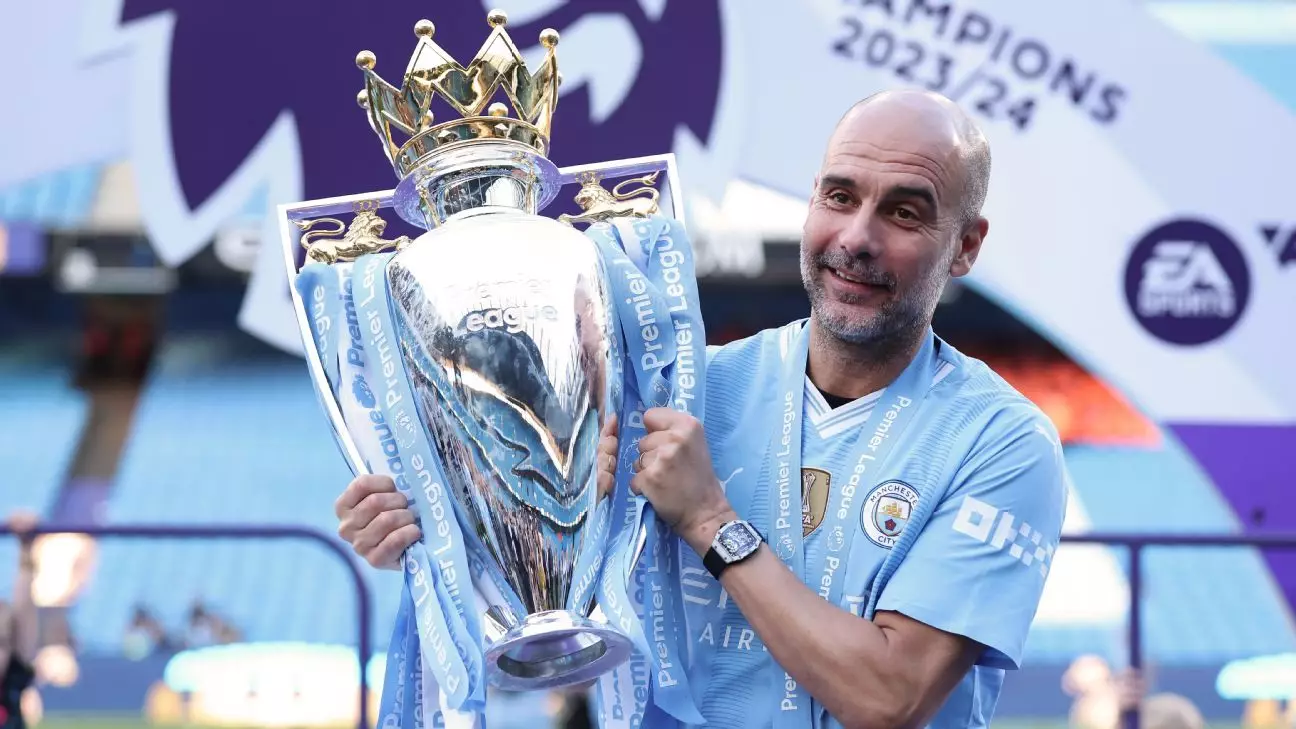In the world of football, the departure of a star manager often ignites fears of decline within a club. However, Pep Guardiola’s recent statements emphasize a stark contrast to the uncertainty experienced by Manchester United after the exit of Sir Alex Ferguson. Since Ferguson’s retirement in 2013, United has been embroiled in a cycle of instability, failing to secure the Premier League title while undergoing multiple managerial changes. In contrast, Guardiola confidently asserts that Manchester City has established a solid foundation that will persist regardless of his future with the club.
Guardiola’s tenure at Manchester City has been marked by unprecedented success, including six Premier League titles in the last seven years. This assertion of strength reflects not just on his managerial prowess, but on the comprehensive framework that supports the club. “I don’t know what happened at United,” Guardiola remarked, likely alluding to the stark differences in organizational resilience. His belief that City will remain successful even after his departure stems from the robust structures in place, which he insists are integral to long-term accomplishment. For Manchester City, it seems, solid operational management is the cornerstone of ongoing triumph.
As Guardiola approaches the conclusion of his contract, speculation about his future is rampant, yet he maintains an aura of calm confidence regarding the transition. He brings reassurance that a managerial change need not spell disaster. “The club is well run and the structure is good,” he highlighted, reinforcing the notion that strong clubs are not tethered to the fate of one individual, no matter how impactful. Guardiola indicates that maintaining continuity during leadership changes is paramount; thus, City can anticipate a seamless transition, even as significant figures depart.
A Look Ahead: The Future of Manchester City
As Guardiola and sporting director Txiki Begiristain prepare to exit, the arrival of Hugo Viana signifies a forward-thinking approach to leadership roles within the organization. City’s decision-makers are poised to embrace new talent and ideas, ensuring that their legacy continues. Guardiola’s leadership has undeniably shifted the trajectory of the club, and with a supportive structure in place, the expectation is that Manchester City will adapt and thrive in the years to come, regardless of personal changes at the top.
In closing, Guardiola’s comments illuminate the vital distinction between Manchester City and their storied rivals. While Manchester United flounders in the aftermath of Ferguson’s departure, Guardiola underscores a broader principle: successful clubs cultivate resilience through agility and strategic foresight. As the Etihad Stadium prepares for potential managerial changes, one thing remains clear: the resilience of Manchester City is deeply embedded in its framework, hinting that their pursuit of excellence will continue unabated, even after Guardiola writes the next chapter of his footballing career.

Leave a Reply